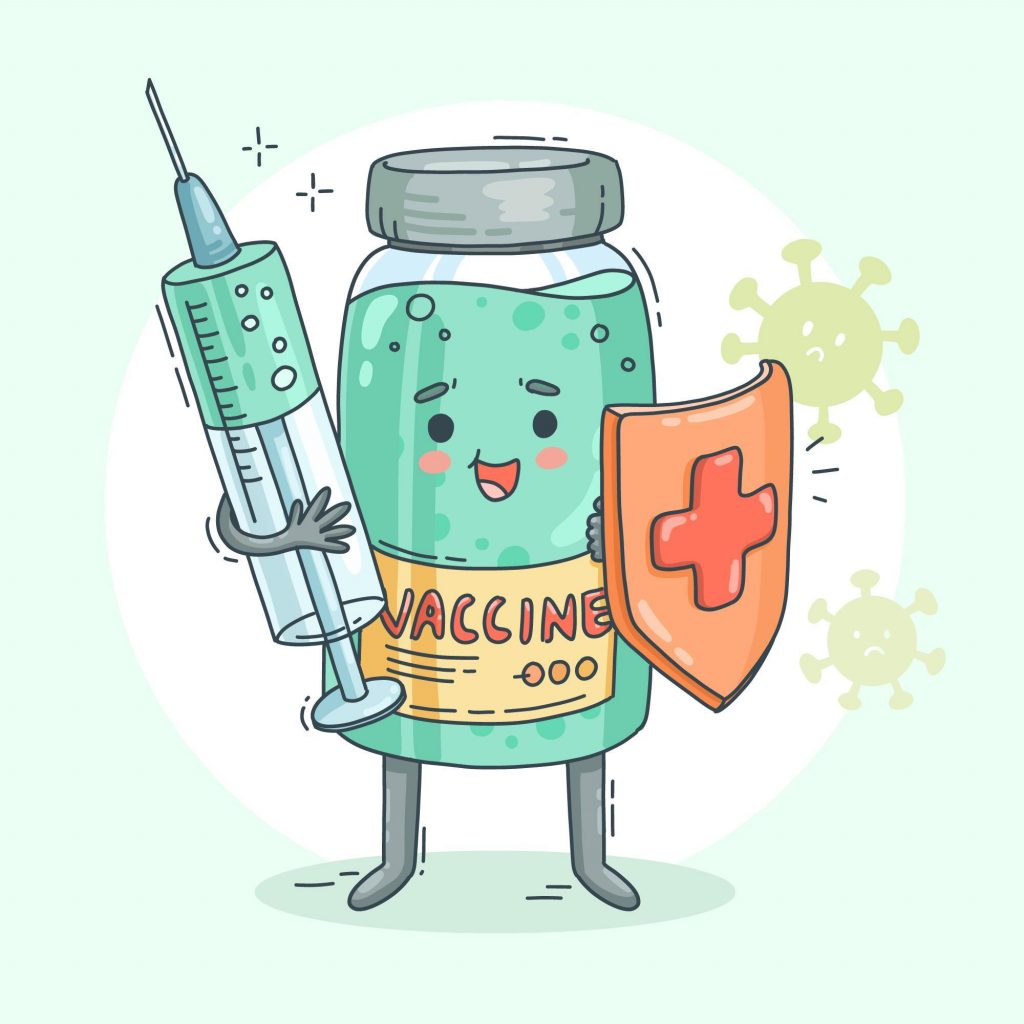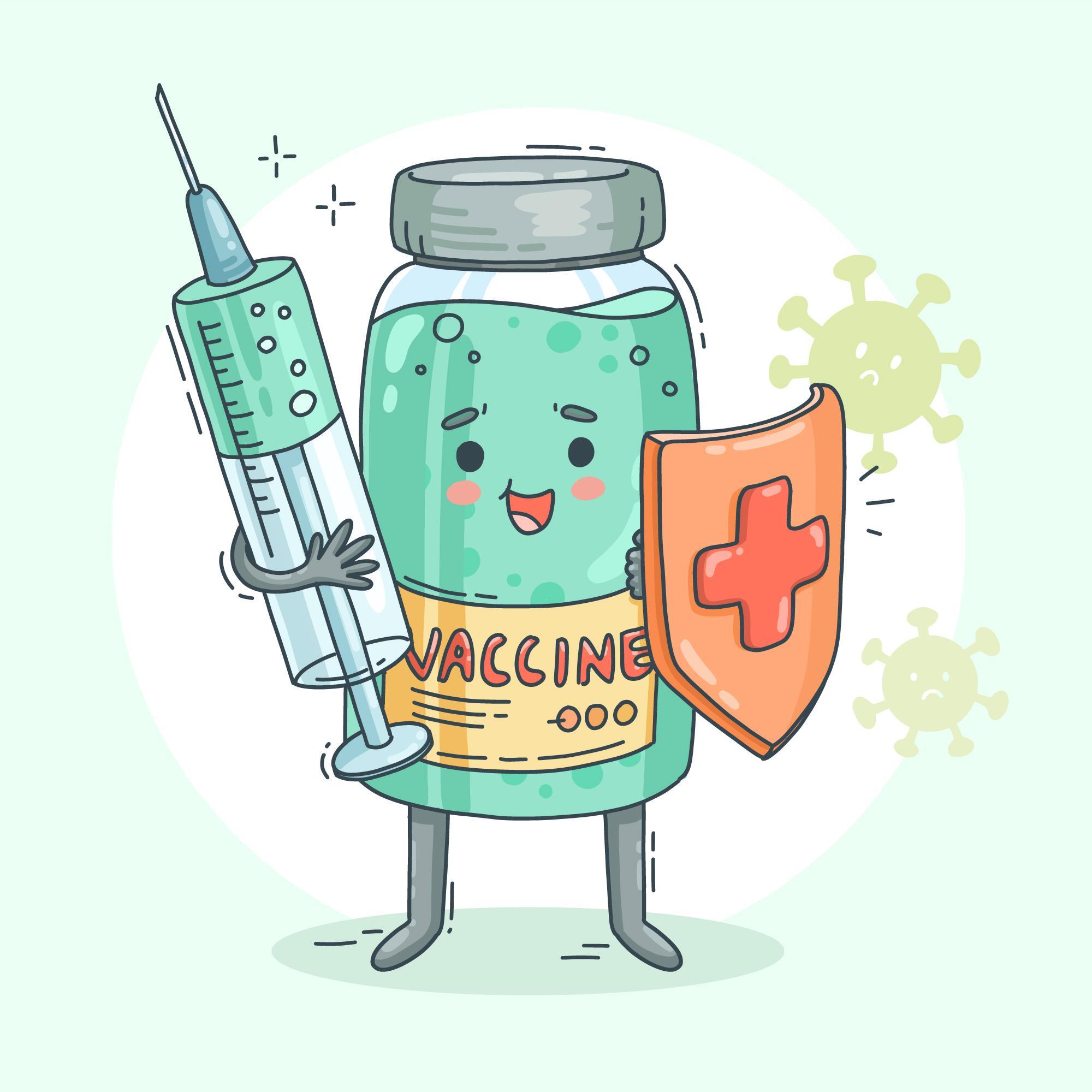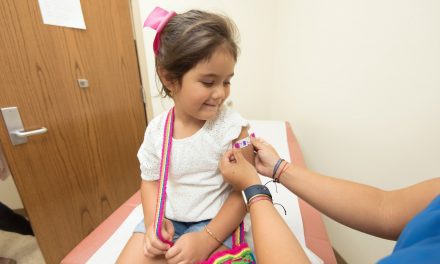Thanks to the inquisitive nature of children, parents are always on their toes answering all sorts of random questions. You try to come up with different ways to tackle these questions, which is either done by taking advice or turning to the resourceful internet that becomes your helpful guide.
But the one area bound to raise questions is when your kid is due for a vaccination. ‘How to prepare your child for a vaccine’ is surely going to be that one question that arises in the minds of new parents as soon as they embark on their journey of parenthood. If you too, find yourself at this stage, keep reading further to know how to go about it.
Prepare Yourself For The Process First
First things first, how prepared do you feel about your child’s vaccination process? Until you feel confident about this answer, it won’t be so easy to prepare your child for a vaccine too. But don’t panic, you don’t have to start overthinking right away; as a new parent, there’s a lot you’ll be learning along the way! There are certain things that are essential for parents to know before, during, and after their child’s vaccination, and knowing how to prepare yourself is the first step.
Even small steps from your end can help you make the childhood immunization process easier. Read up about the vaccine to be given, and know about any vaccine precautions. Most importantly, keep a constant check on your child’s immunization schedule. You can also consult with your doctor beforehand to get a better idea of your child’s vaccination schedule. Don’t hesitate in clarifying any of your doubts or concerns with your doctor because only when you’re convinced will you be able to approach the topic better with your child.

You as a parent need to be prepared to help your child through the scary process of vaccines.
How To Prepare Your Child For A Vaccine
- Approach the vaccination topic with your child based on their age and temperament. Make sure to use simple sentences and keep a positive tone. For example, “You may feel a sharp poke for a few seconds but it’ll go away very fast and we are here to help you be brave.”
- Answer your child’s questions, and explain what the vaccine is. Since they’re probably familiar with the concept of medicines, you can explain that just like medicine, the vaccine will help their bodies be stronger.
- Breastfeeding or bottle-feeding your baby during the shot will keep them distracted and make them feel more comfortable.
- Prepare a separate bag for your child to take to the clinic on the vaccine day, with their favorite toy, a book, or even a comfort blanket. Having things that they’re familiar with around them in a new environment will help them cope with the stress better.
- During the actual vaccination, children are less anxious if they don’t see the needles. Try keeping them distracted during the entire process by telling a story, singing a song, or doing anything that distracts their mind from the pain.
- Once the child is done with their vaccine, be especially supportive toward them. Don’t shout at them for crying, or belittle their fear by laughing it off. Instead, comfort them by saying things like, “you are a brave child”, or “I am proud of you.” Make sure to spend ample time with your child even after the vaccination process is over.

The more prepared you and your child are, the less scary vaccinations will be to them.
Things To Keep In Mind
As an adult, you may be familiar with the vaccination process, but remember that your child isn’t. And the way you approach the entire process will play a major role in determining how your child takes it too.
Even if you’re scared of needles or are very anxious about your baby’s vaccinations, try not to show it to your child. Be empathetic toward any of their doubts or concerns but don’t reaffirm their fears, or let them take a negative approach towards the concept. If you start approaching things from a positive angle, there’s also a possibility for you to overcome your fears and apprehensions, if there are any.
The parenthood journey for every parent is unique in its own way, but a thought that’s common to all is maintaining the wellbeing of their child. Vaccination, naturally, is a very integral part of it all, and compromising on that is never a solution. Your child will receive several important vaccines in their life. Now that you know of a few tips on how to prepare your child for a vaccine, this process won’t seem so overwhelming after all.
Just remember that every child is unique, and so is their way of reacting to things. As a parent, you need to be understanding and supportive of your child’s thoughts, so you can better help them in clarifying their apprehensions.
Conclusion
Following the vaccination schedule for your child is extremely important for their wellbeing. Ideally, you shouldn’t skip or miss out on any of their vaccine appointments. But in the hectic routine that we live in, even important things could slip out of our minds every now and then. Here’s when you need to make optimum use of technology and make it work to your benefit. Check out the ImmunifyMe app that acts as a one-stop shop for all your child’s health needs.
Not only can you maintain digitized health records of your child on the app, but also track their overall growth and milestones. Another interesting feature for all parents to check out on the app is the customized nutrition plan for your baby. When you have this convenience available at your fingertips, why not make full use of it, right? After all, none better than new parents know how time runs super fast around their kids!
FAQs On How To Prepare Your Child For A Vaccine
How Can I Make My Kid’s Injection Easier?
As a parent, you need to keep in mind that your child will be following your cues. So to make your kid’s immunization process easier, you have to keep a positive approach and avoid associating fear with the needles. During the vaccination process, try to keep your child distracted with activities that divert their attention from the pain.
And once you’re done with the process, let your child express their emotions. You can also try celebrating the milestone by treating your kid with ice cream or spending some time in the park. However, do consult with your doctor as to which is the best way going forward.
How Long After Vaccine Will Baby Be Fussy?
Depending on your kid’s age, they may be fussy after taking the vaccine at least for a few hours. Fussy behavior, mild fever, and pain at the injection site are all common side-effects of vaccines in children that usually disappear in a day or two. However, if you notice a drastic change in your child’s health after a few days of taking the shot, do consult your doctor as well.
Should You Tell Your Child They’re Getting Shots?
Ideally, you can take a judgemental call here based on your child’s age and temperament. If you feel your child is big enough to understand vaccinations, you can let them know a little in advance as to when they would be getting their shot. Either way, remember to keep a positive approach toward the process and assure your child that you’ll be with them at every step of the way. Acknowledge all concerns that your child may have about the vaccines and have an open discussion about the same.
How Can You Make Vaccines Less Painful?
After consulting your doctor, you can choose to use a numbing cream at the injection site prior to the vaccination or take a non-aspirin pain reliever after the shot. Do make sure to consult with your doctor before choosing to use any kind of medications for your baby, especially around their immunization schedule. As for infants, you can also choose to breastfeed your baby during the shot so as to keep them distracted and make the entire process a little less painful.
How Do I Help My Child With Fear Of Needles?
Running away from needles isn’t a solution for anyone, so the best way to help your child overcome their fear of needles is to take an honest approach. Once your child is big enough to understand the concept of vaccinations, tell them the importance of vaccines and how beneficial they are to us.
Avoid associating vaccines with threats or punishments because then your child is bound to fear the process more. As a parent, you need to model the behavior that you want your child to follow. So keep yourself calm and composed throughout the process and let your child openly express their emotions in front of you.







I think you did a great job helping us get ready to get our child vaccinated. Recently, my wife and I decided it’s time we get our son vaccinated, but we’re worried about how to make it happen without a major fuss. Our son’s in that stage where he cries and cries and throws tantrums, so we believe your tips will definitely help us. We appreciate what you said about distracting our child while getting vaccinated.